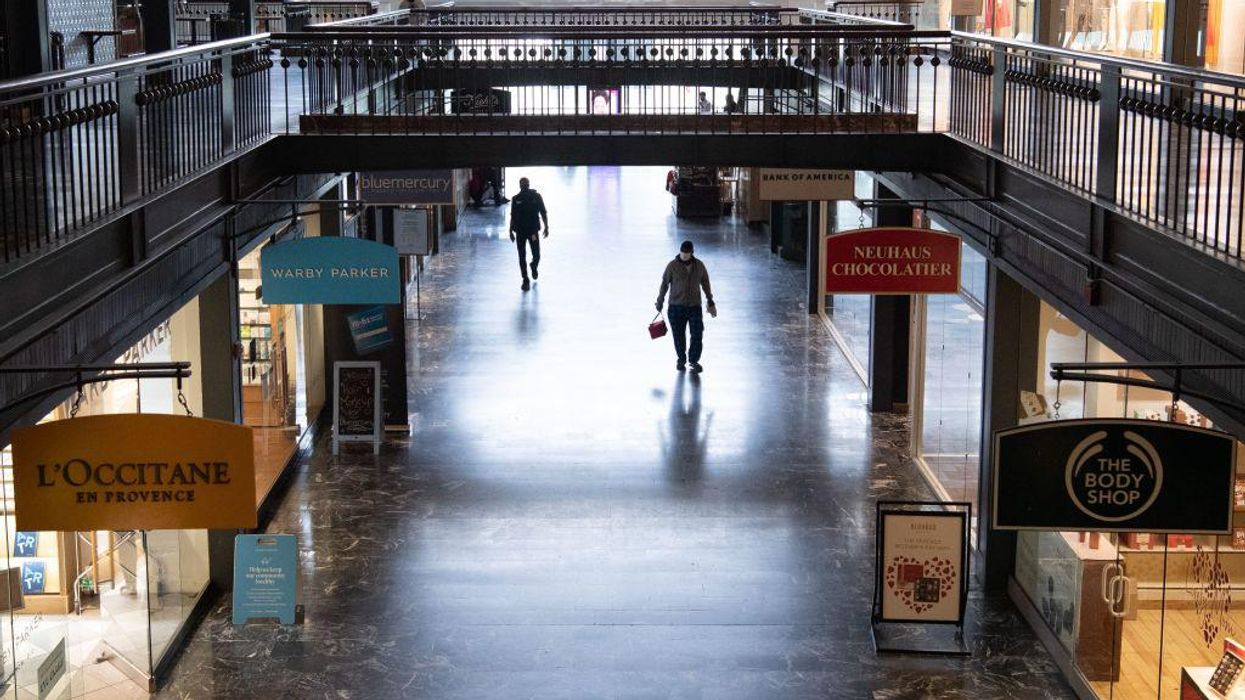
SAUL LOEB/AFP via Getty Images

Lockdowns in the U.S. and Europe "had little to no effect on COVID-19 mortality" but "imposed enormous economic and social costs" in the places where they were implemented, researchers at Johns Hopkins University said in a new analysis released this week.
The researchers reportedly reviewed two dozen unique studies conducted during the early stages of the pandemic as a part of their meta-analysis and ultimately found that lockdowns in the U.S. and Europe only reduced COVID-19 mortality by an average of 0.2%.
Temporary shelter-in-place orders were also found to be ineffective, only reducing COVID-19 mortality by 2.9% on average, the researchers noted.
The analysis was published by the Johns Hopkins Institute for Applied Economics, Global Health, and the Study of Business Enterprise, an organization led by one of the analysis' authors, Steve H. Hanke.
Hanke, a professor of applied economics at the renowned university, was joined by Jonas Herby, a special advisor at the Center for Political Studies in Copenhagen, Denmark, and Lars Jonung, professor emeritus in economics at Lund University, Sweden, in conducting the research.
Together, they concluded, "We find no evidence that lockdowns, school closures, border closures, and limiting gatherings have had a noticeable effect on COVID-19 mortality."
Yet while lockdowns during the initial phase of the pandemic failed to prevent the spread of the deadly pathogen as many public health experts promised, they did impose "devastating effects" on the places that implemented them, the researchers noted.
"They have contributed to reducing economic activity, raising unemployment, reducing schooling, causing political unrest, contributing to domestic violence, and undermining liberal democracy," the researchers said. "These costs to society must be compared to the benefits of lockdowns, which our meta-analysis has shown are marginal at best."
"Such a standard benefit-cost calculation leads to a strong conclusion: lockdowns should be rejected out of hand as a pandemic policy instrument," they concluded.
In fact, the only shutdown policy that may have achieved marginal success in reducing COVID deaths was bar and restaurant closures. But even in that case, the researchers said more studies were needed.
The conclusion stands in complete contrast to the widely accepted notion presented by public health experts during the early stages of the pandemic.
Many leading epidemiologists — including Dr. Neil Ferguson of the Imperial College London and scientists at the Institute for Health Metrics and Evaluation at Washington University — argued early on that lockdowns were absolutely necessary to avoid mass fatalities.
The analysis made specific reference to Imperial College London's initial estimate that lockdowns would reduce COVID deaths by as much as 98%. That estimate, according to the researchers, proved not even close to correct.
Furthermore, after examining deaths early during the pandemic, they found that by end of the lockdown period studied, on May 20, 2020, a total of 97,081 people had died of COVID-19 in the U.S. Another prominent model at the time had predicted there would be 99,050 deaths without lockdowns.
The analysis is sure to garner widespread attention over the next several days and weeks as many around the globe continue to debate over the efficacy of lockdown policies to combat the ongoing pandemic.
(H/T: The Washington Times)